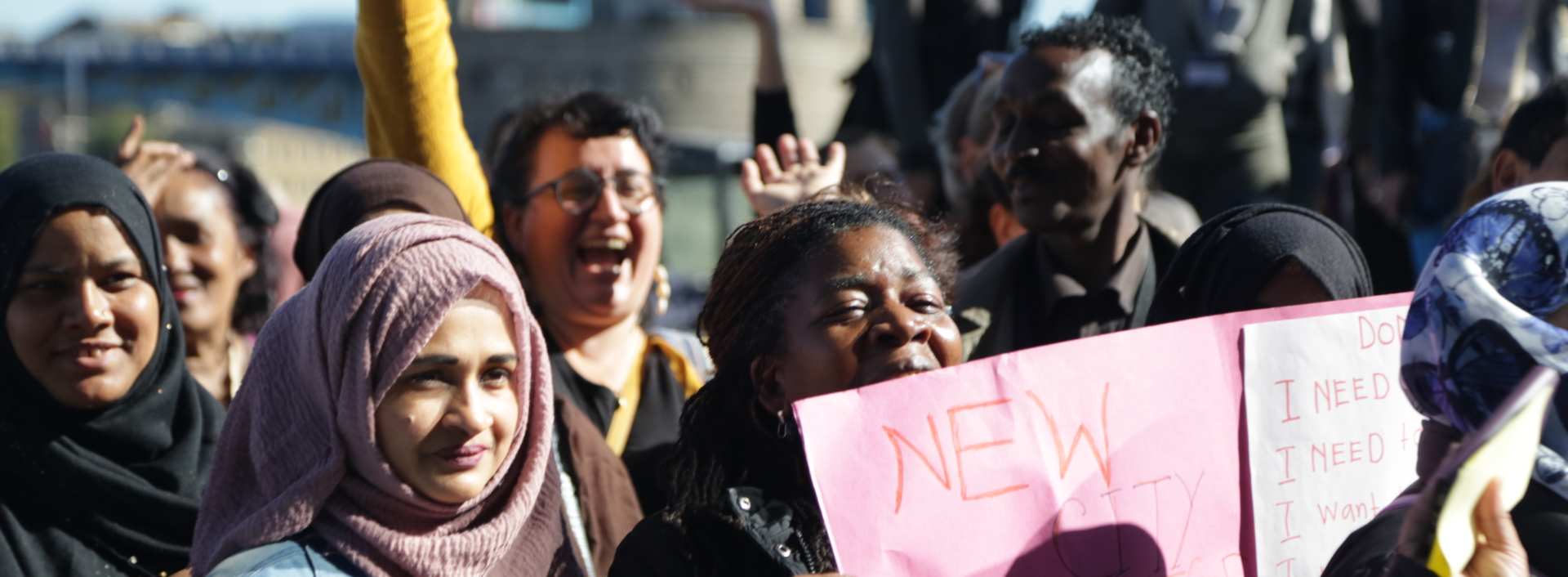ESOL learners and teachers from across London gathered outside City Hall for the European Day of Languages last week – to celebrate the capital’s diversity, where more than 300 languages are spoken – and to demonstrate their commitment towards creating an inclusive London, where everyone can access English classes.
The event, on 26th September, was supported by English For Action (EFA), an organisation that provides English for Speakers of Other Languages (ESOL) courses for adult migrants in communities across London. EFA’s community organiser Jess Walker has been piloting community organising training for ESOL students in Hackney, where they have looked at listening, power and putting ideas into action, as well as exploring the issues affecting them.
These students then went on to lead a delegation of over 100 ESOL learners and teachers to City Hall to find out about the Mayor’s plans for ESOL, and meet with the Deputy Mayor for Social Integration to discuss the changes they would like to see ahead of the devolution of the adult education budget in 2019/20.
Families in low paid employment, shift work or with childcare commitments are those currently most at risk of missing out under national provisions for ESOL in London. Central government cuts have seen public spending on ESOL reduce by 60% since 2009. Without English, people face barriers to participating in and contributing to communities, the economy and democracy.
“For years, a lot of the campaigning about ESOL has been done by teachers, so this is really about getting the students’ voice at the centre of it,” explained Amy.
One student who has been integral to the organisation of last week’s event is Adriana, from Brazil. She spoke powerfully about how learning English is fundamental to those who come to London, not just for the learners’ benefit, but for the city as a whole. She explained that being able to speak English means that you can work and pay tax to help the rest of society, and how speaking a common language means people are better connected, leading to better mental health which saves the NHS money in the long run.
“If you know more English, you can participate in everything and feel confident talking to people. When you don’t speak English or when you don’t understand, it’s horrible,” Adriana explained.
The personal power that ESOL unlocks in individuals is clear when listening to Adriana and other students’ stories, but the community organising training carried out with ESOL students have also unlocked their collective power. Adriana reflects: “Today I am here with more than 100 people, so today we have more power than last year. So the point is we are together, to change the situation.”



